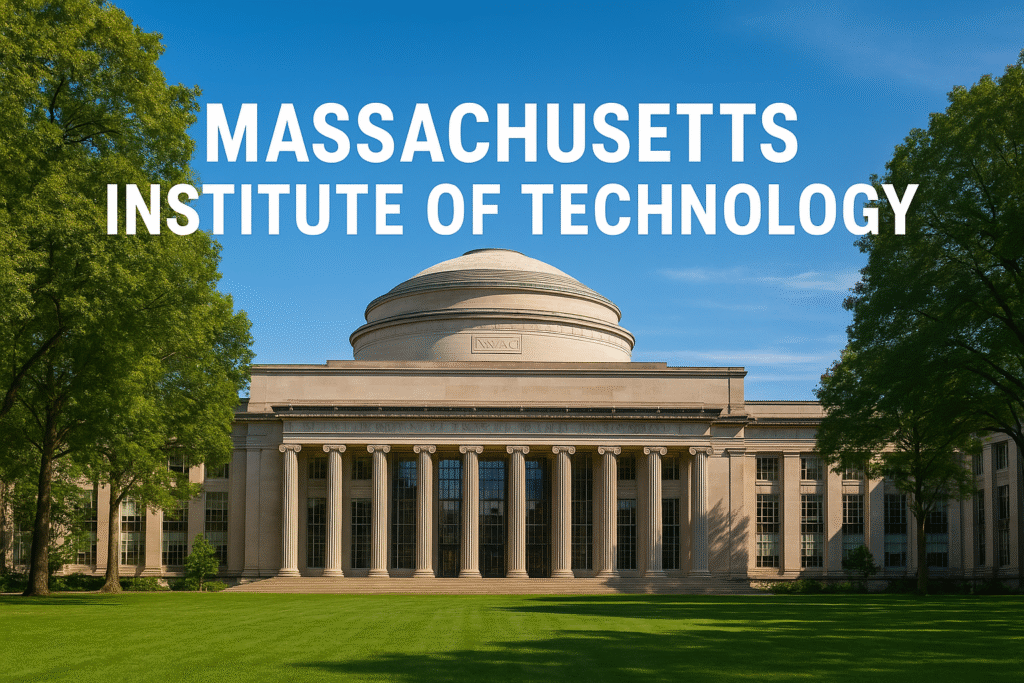Introduction
Massachusetts Institute of Technology (MIT) is one of the most prominent science and technology institutions in the entire globe. Established in 1861, in Boston and in 1916 in Cambridge, Massachusetts, Massachusetts Institute of Technology was established on the philosophy of “learning by doing” a motto that is still reflected in its Latin motto, Men’s et Manus (“Mind and Hand”)
So why does Massachusetts Institute of Technology continue to beat all university ranking? In addition to its high ranking, MIT has an environment in which top research, innovation, business and practical uses come together. The following article deciphers the history of MIT, its rankings, its academic structures, its diversity initiatives, and its impact in the field of innovation as well as the admission process at MIT- providing aspiring students, teachers, and admirers with comprehensive and authentic information and practical tips.
History & Founding Philosophy
Massachusetts Institute of Technology was founded on the notion of functionality regarding knowledge created by Roger and it introduced laboratory instruction.
Establishment: The company was incorporated in 1861 to satisfy the scientific requirements of the industrial age
Philosophy: It concentrates on the combination of professional training and liberal arts via experience learning
Movement: Migrated to Cambridge in 1916 where they established a campus along Charles River that was designed in a manner capable of adapting to growth and innovation
Encyclopedia Britannica
Campus & Architecture
The small, but active campus of MIT is a combination of old buildings and radical architecture.
Scale of Campus: Covers nearly 168 acres, which consists of 20 student residential facilities, more than 40 gardens and 60 public art exhibits
Massachusetts Institute of Technology
Iconic Buildings:
Campus heart, Rogers Building & Infinite Corridor
The deconstructivity masterpiece, Stata Center by Frank Gehry was opened in 2004.
Schools and Academic Constitution
MIT combines both interdisciplinary learning and breadth of domains.
There are Five Traditional Schools:
Engineering
Science
Architecture & Planning
Liberal Arts, Arts & Social Sciences
Sloan School Of Management
New Addition (2020): Schwarzman College of Computing- AI, data science, computing ethics -oriented
International Ranking and Reputation
The MIT is consistently the leading university in the world.
QS Rankings: Listed in university world rankings- including 2026
Top Universities:
Conviction: Has stayed put 10 plus years
Times of India
Top Universities
Student Enrolment & Diversity
The most diverse student body leads to the campus having rich perspectives.
Enrollment (202425): About 11,886 students- 4,535 undergraduate students and 7,351 graduate students
Percentage of international students: 3,430, 12 percent of undergraduates and 40 of grad students
MIT Facts
Gender/Staff Ratio: 42 percent female, 58 percent male, student to staff ratio n:m ~8:1
Times Higher Education (THE)
Admissions & Selectivity
Admission to MIT is competitive and basing on data.
Admits vs Applicants (Class of 2028): The applicants stood at more than 28.000, and only ~1.284 were admitted
Massachusetts Institute of Technology
IR at MIT
Enrollment Diversity Change: Following Supreme Court barring race-based admissions (2023), the proportion of freshmen representing Black, Latino, Native American, and Pacific Islander fell 31 percent to 16 percent
Innovation, Research & Entrepreneurship
MIT supports a worldwide entrepreneurial ecosystem that brings worldwide breakthroughs.
Impact Zone: The hub of life-science and AI innovation is at the Vassar/ Main with the likes of Broad, Koch and Whitehead to name a few.
Alumni Startups: Sales run to millions of dollars worldwide; 18 percent of alumni start businesses, more than 6,900 start-ups just in Massachusetts
Museum & Cultural Outreach
MIT Museum is a fusion between technology, art and the edification of the public.
Years of establishment: 1971; it is close to Kendall/MIT Red Line station
Collections: Worlds largest holography (1,800 items) collection, robotics, architecture, AI and rotating exhibitions.
Highlights of Accomplishment and memberships
The history of MIT is full of novelists and outstanding leaders.
| Honor | Number |
|---|
| Nobel Laureates | 105 |
| Turing Award Winners | 26 |
| Fields Medalists | 8 |
| National Medal of Science | 58 |
| National Medals of Technology & Innovation | 29 |
| MacArthur Fellows | 50 |
| Marshall Scholars | 83 |
| Astronauts | 41 |
Admissions FAQs
How high is the acceptance rate of MIT?
About 4-5 per cent, out of 28,000+ applicants admitted 1,284.
What is the international student body diversity?
Of the undergraduates, 12 percent are international students; 40 percent of the graduate students are.
Which programs are the best-known at MIT?
Schwarzman College of Computing; engineering, computer science, AI, life sciences and cross-disciplinary programs.
Is MIT entrepreneur friend?
Yes well-rooted to the innovative centers such as Kendall square, alumni-founded start-ups, and industry collaborations.
What cultural resources exists at MIT?
MIT Museum, outdoor art installations, gardens, and active exhibitions are ways of linking art, technology, and community.
Conclusion
Featuring its innovative lab-based learning and its unimpeachable international reputation, the Massachusetts Institute of technology offers the innovation, research leadership and scholarly tradition. Whatever your interest, be it world-leading engineering, AI innovation at the Schwarzman College, or an entrepreneurial powerhouse ecosystem, MIT delivers beyond the classroom and can also teach what it is like to better society.
Having thousands of foreign graduates, a distinguished faculty, and a history of landmarks, MIT is changing the future–by invention and community. Interested readers can look at the official site of MIT, namely, MIT Admissions (also listed above), as well as academic research sources, such as Britannica, US News, and Reuters (also listed above), to get more details. Now, to move on the next level? Explore the pages tailored to the program, engage in virtual tours or connect with current students to shed some light on the campus. Change is coming–the frontier of innovation. And MIT is helping to provide the way.







mb5cyh